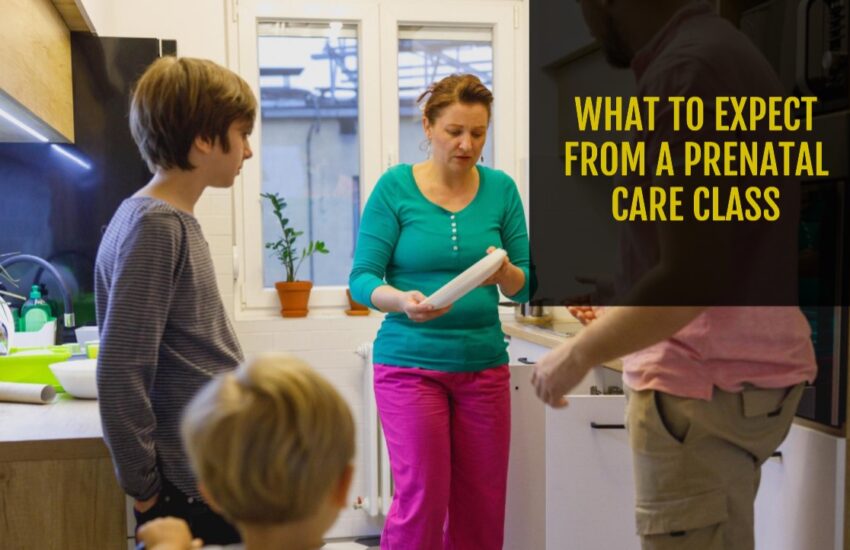Childbirth can be one of the most intense and life-altering experiences a person can undergo, and having access to reliable, secure information can help you feel prepared and confident throughout your experience.
The Baby Care Class educates expecting parents on newborn characteristics and daily care through hands-on activities, films and group discussion. Classes can be found both physically in class as well as online.
Preparing for Childbirth
best prenatal classes (also known as labor and delivery prep courses) are highly recommended by ob-gyns, nurses and doulas for expectant mothers. These courses cover nutrition, exercise and fetal development in addition to how to prepare for labor and delivery – showing moms-to-be and their partners the options available for a safe, healthy birth experience. In some instances these courses include tours of hospitals or birth centers in your area so you can become acquainted with your surroundings before labor starts.
Most prenatal care class instructors are certified childbirth educators with plenty of expertise to share with expectant mothers-to-be. They may also assist you with creating your birth preferences in writing to take to hospital – often known as a birth plan.
Additionally, childbirth classes provide breathing and relaxation techniques for the big day, infant CPR training and first aid lessons as well as more traditional training options like CPR/first aid certification. When searching for classes online or locally it’s important to find something you feel comfortable with; there are both in person and online options.
Consider whether the class will be private or public and how the instructor views birth; make sure their views align with yours, and they support whatever path you decide for your birth experience. Finally, pay attention to class size – too large may prevent meaningful interactions between couples and your instructor.
Preparing for Your Newborn
Ob-gyns, labor and delivery nurses and doulas recommend pregnancy classes to first-time parents to prepare them for childbirth. Also known as labor preparation or childbirth education classes, these pregnancy courses provide pregnant moms-to-be with information and tools they’ll need during labor as well as postpartum care advice for their newborn after they give birth. Furthermore, parents-to-be can meet others due around the same time for support during this exciting journey!
Childbirth classes come in all shapes and sizes: some may be free through hospitals or women’s health groups while others can cost several hundred dollars privately. Expecting moms should carefully evaluate each instructor’s philosophy and vision of birth to make sure it fits with their own conception of labor and delivery; additionally these classes frequently cover newborn care, breastfeeding support, CPR protocols for infants as well as topics such as breastfeeding.
Understanding Fatherhood offers expectant dads a pregnancy class aimed at men called Understanding Fatherhood. This live webinar course helps participants explore their roles as fathers within families, newborn traits and behaviors, care of an infant as well as comforting a crying infant. Participants may ask questions during this session as well as practice holding, diapering and swaddling a doll doll during this practice session. Topics such as circumcisions, siblings/siblings as well as when to contact pediatrician are also covered during the session.
Preparing for Postpartum Recovery
Prenatal care classes not only help educate expectant parents about childbirth and newborn care, but can also provide a platform for building connections among expectant parents going through similar experiences. It may bring comfort knowing others are going through what you are going through – and could even result in long-lasting friendships!
Most maternity services offer antenatal classes. Typically lasting several weeks and tailored to meet the schedules and needs of expectant parents and partners, they’re designed to fit seamlessly into everyday life for expectant parents and partners as they make preparations for parenthood together. At University of Chicago Medicine for example, prenatal classes are offered both online and in person over 10 sessions that cover topics like breastfeeding preparation, infant CPR and installing car seats – led by certified childbirth educator Evelyn Turner MSN, RN-MNN as well as other specialists from UChicago Medicine specialists.
Newborns don’t come with instructions, so taking prenatal care classes will teach you how to care for your newborn. Classes will cover topics like normal newborn characteristics, behavior and crying patterns; bathing, diapering and swaddling techniques; newborn tests that you might undergo during your hospital stay as well as any potential signs that there might be something amiss.
Alternatively, Understanding Birth Express offers a virtual class designed for women looking for information on labor and delivery. The class covers medical interventions such as pain relief and cesarean delivery as well as comfort measures used during labor; however it does not address postpartum recovery measures or natural comfort measures.
Other Topics
Structured prenatal education programs are provided by hospitals, community organizations and public health agencies in order to prepare expectant mothers and their partners/support persons for childbirth, breastfeeding and infant care. Classes may be led by trained health-care professionals in an in-person or web-based format (The Gift of Motherhood e-learning program being one). Although their topics vary, most programs aim to inform expectant parents on prenatal care options available during gestation as well as postpartum recovery (Best Start Resource Centre 2014; Gagnon & Sandall 2007).
Recent research conducted at a community prenatal education program asked participants to rate the importance of 15 education topic subtopics, with Newborn Safety and Labor and Birth being most highly valued by respondents (which was consistent with prior research showing). Ateah (2013) has suggested that preparability for childbirth and newborn care is one of the primary motivations for attending these prenatal education programs (Ateah 2013).
The survey also asked respondents about their preferred delivery methods for prenatal education sessions. Most respondents (79.5%, n = 85) preferred face-to-face group sessions, with most (56.6%, n = 85) preferring one instructor throughout their prenatal journey.
